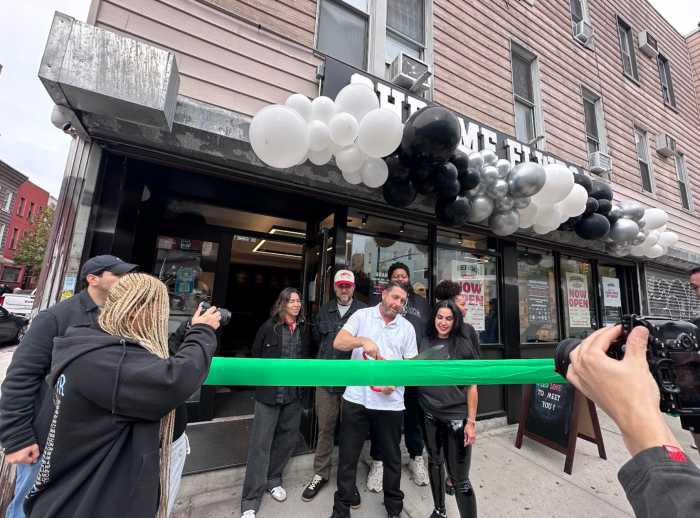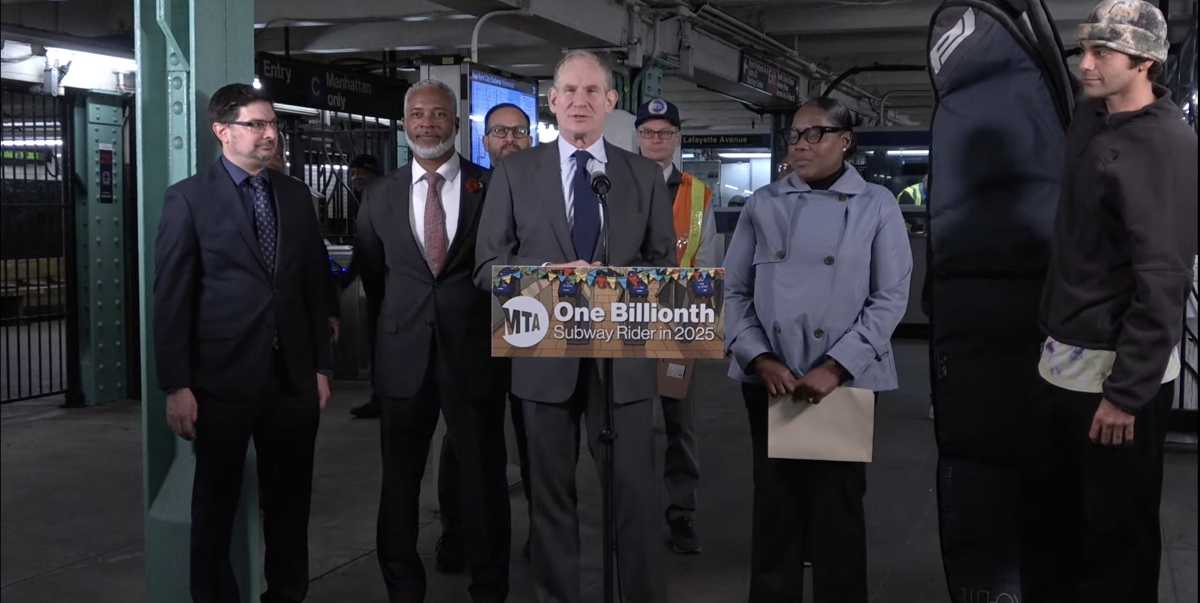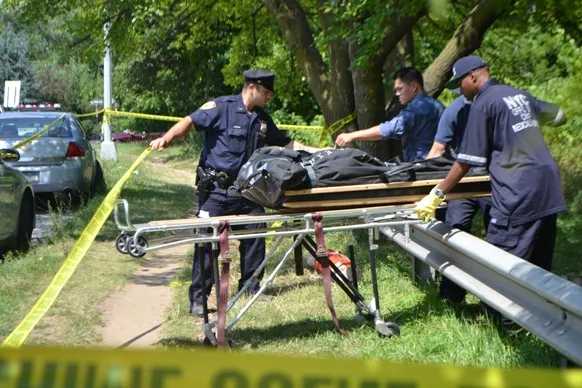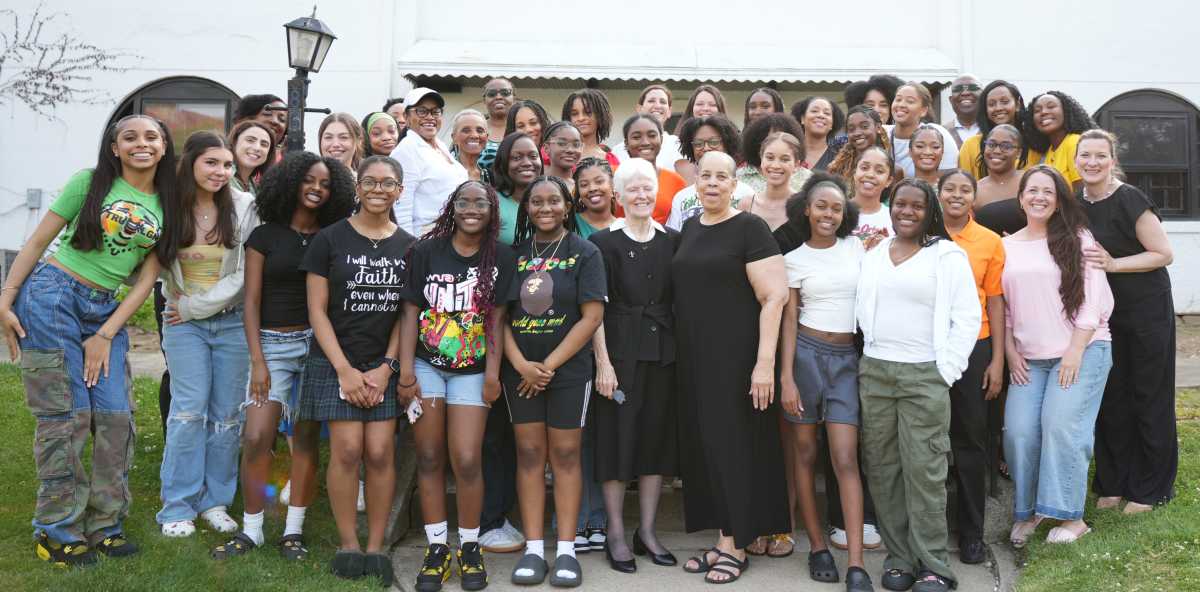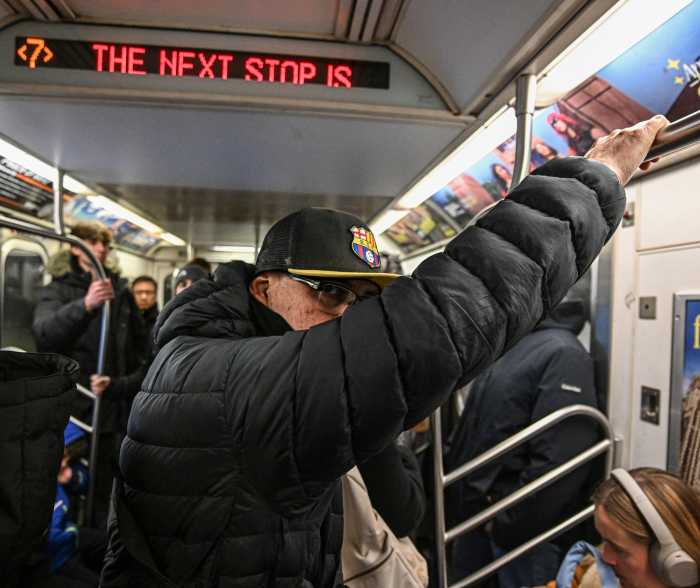The protracted saga over the removal of Teresa Toro as Community Board 1 Transportation Committee hearing may be drawing to a conciliatory end.
At a CB1 Executive Committee meeting Tuesday night, CB1 Chair Vincent Abate would not say what he planned to do about Toro, whom Abate deposed on December 23 over a disagreement stemming from the controversial Kent Avenue bike lanes.
But he did say “I know what I’m going to do” at the next CB1 meeting on February 10, when he says he will announce his decision.
He also reiterated his comments from the CB1 meeting in January, at which supporters of Toro — who has gained citywide recognition as an advocate for livable streets — packed the room to assail Abate’s decision to depose her.
“As I’ve said before, I’ve never left a fractured organization in my life,” said the 90-year-old Abate, who has chaired an astounding number of local community organizations through the years.
The rift between Toro and Abate began with a December 5 letter Abate and CB1 District Manager Gerald Esposito wrote to the Department of Transportation about the bike lanes, which the DOT installed in October as a prelude to the eventual Brooklyn Greenway.
But since their installation, the lanes have upset many of Kent Avenue’s business owners and residents. The business owners, many of whom are light manufacturers, say the lanes make it impossible for them to run their businesses by preventing them from loading and unloading materials. The mostly Hasidic residents along the southern stretch of Kent Avenue complain the lanes take away parking and generally disrupt their lives.
In their letter, Abate and Esposito supported a proposal by Councilman David Yassky and other politicians to remove the northbound bike lane. Their letter also called for the southbound bike lane to be reconfigured to allow for at least some car parking.
After the letter went out, the Brooklyn Eagle published an article stating the contents of the letter as CB1’s official position. When Toro saw the article, she wrote a letter to the Eagle reporter saying that Abate and Esposito did not speak for the board, which had not voted to authorize to support the specific solution the pair had advocated.
“[Abate and Esposito] were expressing their personal opinions and should have clarified that in the letter,” Toro wrote.
When he became aware of Toro’s letter, Abate viewed it a breach of board protocol and an act of insubordination. For that, he deposed her.
“If she had a problem [with the December 5 letter], the proper thing was to call the chairman. If I’m wrong, just tell me I’m wrong. But don’t go to the press,” Abate said at Tuesday night’s meeting.
“The whole point was that I had to read about it in the paper. It wasn’t a question of being offended, but I’m the chairman here. If you don’t respect the chairman, then who are you going to respect?”
Abate said deposing Toro “sets an example for the next person who wants to do what she did.”
But when asked if he was satisfied that his message had gotten across even if he reinstates Toro, Abate responded in the affirmative.
“People know what will happen, that’s the important thing. They’ll know if they do this, then something’s going to happen.”
He added: “I don’t want an apology from anybody. That’s demeaning to me. This was never personal. I’ve never liked apologies.”
Taken together, Abate’s comments seem to point toward his reinstating Toro.
Toro wasn’t at Tuesday night’s meeting where she was the topic of discussion. But when reached for comment the next day, she sounded a conciliatory tone as well.
“If he still thinks I’m the most appropriate person to chair the committee, and if he offered me the chairmanship, I would gladly accept,” she said.
During the episode, Toro has maintained she has done nothing wrong. It was Abate and Esposito, she believes, who violated board protocol by writing a letter expressing a board position without taking a vote on it.
When told of Abate’s comments about the importance of setting a precedent, Toro said, “The point I was trying to make also remains made. This situation has given everybody food for thought. Going forward, the board can learn from this.”


